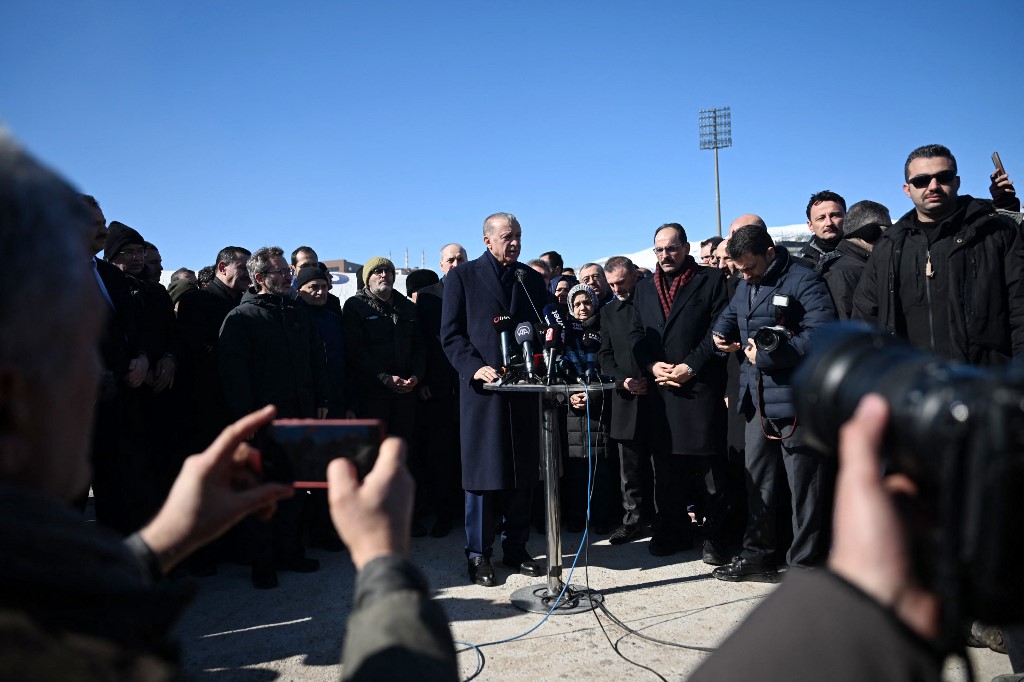The European Centre for Press and Media Freedom along with 19 other press freedom, freedom of expression and human rights organizations has called on Turkey’s broadcasting watchdog, the Radio and Television Supreme Council (RTÜK), to immediately stop fining broadcasters for their critical reporting ahead of elections on May 14.
Instead of upholding freedom of expression and media pluralism in the country, RTÜK is being weaponized by the governing parties to silence legitimate criticism and provide them with an unfair advantage in the May 2023 elections. This suppression of public debate is undermining the electoral process, said the organizations in their joint statement published on Thursday.
The statement referred to the most recent fines imposed by RTÜK earlier this month on FOX TV, Halk TV and Tele1 on the grounds that they violated the principles of broadcast journalism and failed to act with impartiality.
FOX TV was fined 3 percent of its monthly ad revenue after news anchor Gülbin Tosun criticized the government’s approach to women’s rights, saying that “the ruling alliance does not want you to work or study, but to have babies and stay at home” during a live broadcast. Tosun was targeted by members of the ruling Justice and Development Party (AKP) following her comments.
RTÜK imposed the same penalty on Halk TV for “preventing the free formation of opinion” after a presenter and her guest cited a news article claiming that Turkey’s Disaster Management Authority (AFAD) had charged survivors of February earthquakes to rent its equipment to help rescue their relatives from the rubble.
TELE1 was also fined 3 percent of its monthly ad revenue for “humiliating a municipality” after the hosts of the “18 Dakika” program criticized the AKP-run Şanlıurfa Municipality and cited allegations that the municipality had transferred funds, provided by foreign governments to Turkey, to the Taliban in Afghanistan.
These fines came on the back of a series of penalties already imposed in February on Halk TV, TELE1 and FOX TV and in March 2023 on Halk TV, TELE1, FOX TV, Show TV and Yıldız EN TV. RTÜK also imposed temporary bans on numerous programs because of their critical coverage.
In 2022 RTÜK issued 54 fines on five independent broadcasters totaling 17,335,000 Turkish lira (approximately $825.000). By contrast, pro-government channels received a total of four fines totaling TL 1,674,000 (approximately $80.000).
The government’s censorship is not limited to domestic news channels. In March the Ministry of Industry and Technology declined to renew the operating license of German broadcaster Deutsche Welle’s (DW) Turkish service after it was blocked in June 2022 at the request of RTÜK. DW is no longer able to operate in Turkey as a legal entity, forcing its reporters and editors to continue working as freelancers, deprived of stable work contracts and social security benefits.
“We view these incidents as part of the Turkish government’s systematic attempt to stifle critical reporting and to control the information flow ahead of Turkey’s presidential and parliamentary elections on May 14, 2023,” the organizations said.
“We call on the Turkish broadcast regulator, RTÜK, to immediately end the persecution of independent broadcasters and act according to its mandate to secure freedom of expression and media pluralism in the country.”
RTÜK is accused of contributing to increasing censorship in the country by imposing punitive and disproportionate sanctions on independent television and radio stations critical of the Turkish government.
According to Reporters Without Borders (RSF), 90 percent of the national media in Turkey, which was ranked 149th among 180 countries in the RSF’s 2022 World Press Freedom Index, is owned by pro-government businessmen and toe the official line.
Signed by:
Association of European Journalists
ARTICLE 19
Articolo 21
Coalition For Women In Journalism (CFWIJ)
Committee to Protect Journalists (CPJ)
Danish PEN
English PEN
European Centre for Press and Media Freedom (ECPMF)
European Federation of Journalists (EFJ)
Freedom House
International Federation of Journalists (IFJ)
International Press Institute (IPI)
Media and Law Studies Association (MLSA)
OBC Transeuropa (OBCT)
PEN International
Platform for Independent Journalism (P24)
Reporters Without Borders (RSF)
South East Europe Media Organisation (SEEMO)
Swedish PEN
World Association of News Publishers (WAN-IFRA)
